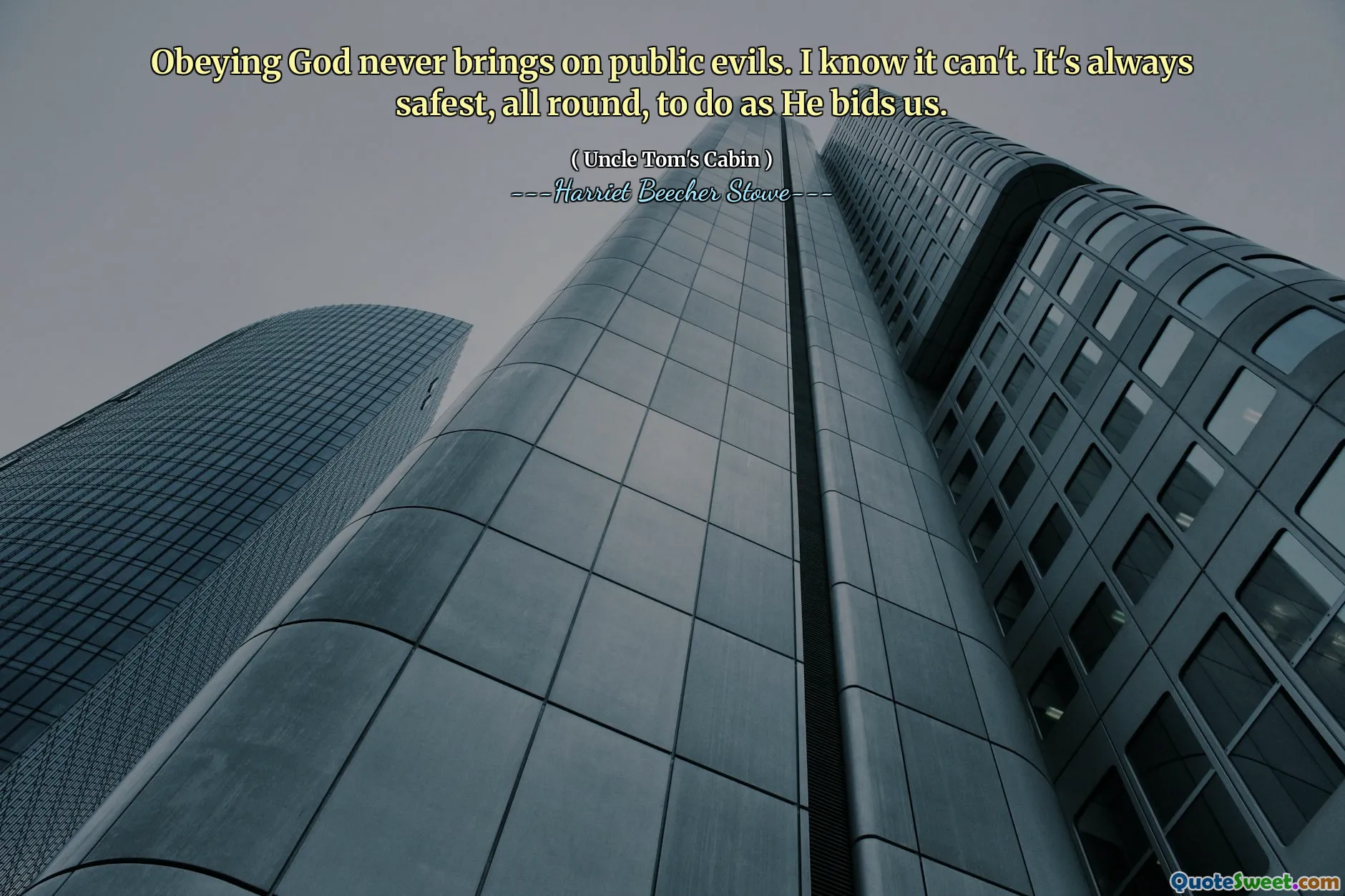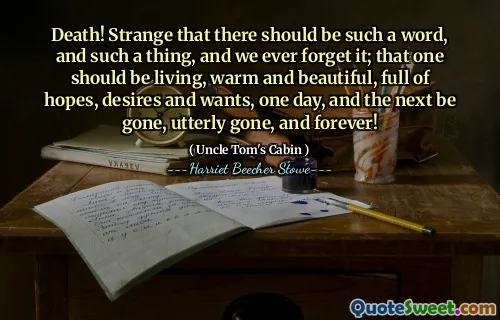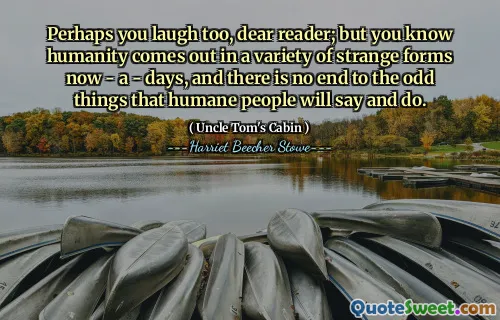
Obeying God never brings on public evils. I know it can't. It's always safest, all round, to do as He bids us.
This quote from Harriet Beecher Stowe's Uncle Tom's Cabin emphasizes an unwavering trust in divine guidance and morality. It suggests that adherence to God's will is inherently just and protective against communal harm. The assertion that obeying God "never brings on public evils" reflects a belief that divine commands are inherently aligned with the greater good and social harmony. From a philosophical and theological perspective, this implies that moral order is grounded in a higher authority and that individual and collective well-being depends on following this transcendent standard.
In a broader social context, this quote speaks to the importance of aligning personal and societal actions with ethical principles believed to be divinely mandated. It underscores the conviction that true security—"it's always safest, all round"—comes not through human scheming or self-interest, but by surrendering to divine direction. This reflects a worldview where moral and spiritual obedience is seen not only as a path to personal salvation but also as a foundation for societal peace and justice.
Critically, while the quote offers hope and moral clarity, it invites reflection on the diverse interpretations of what God's will entails and how it translates into human law and behavior. It encourages readers to consider the implications of faith-inspired action in the face of social injustice, as well as the possible conflicts when differing beliefs claim divine sanction. Ultimately, this statement from Stowe encapsulates a profound faith in divine providence and the conviction that the safest and most righteous course in life is to follow God's guidance.








